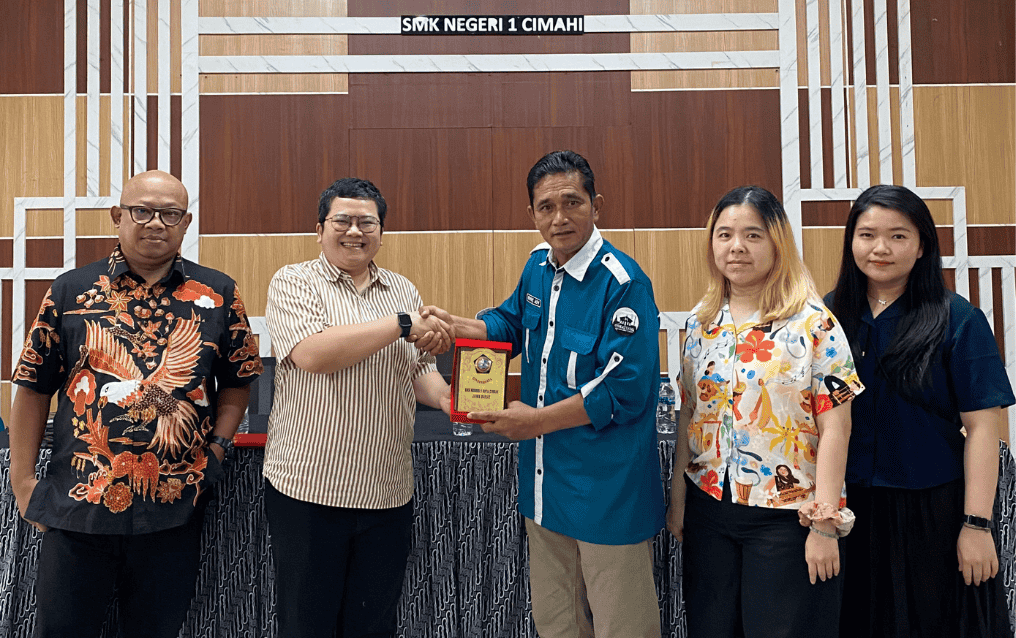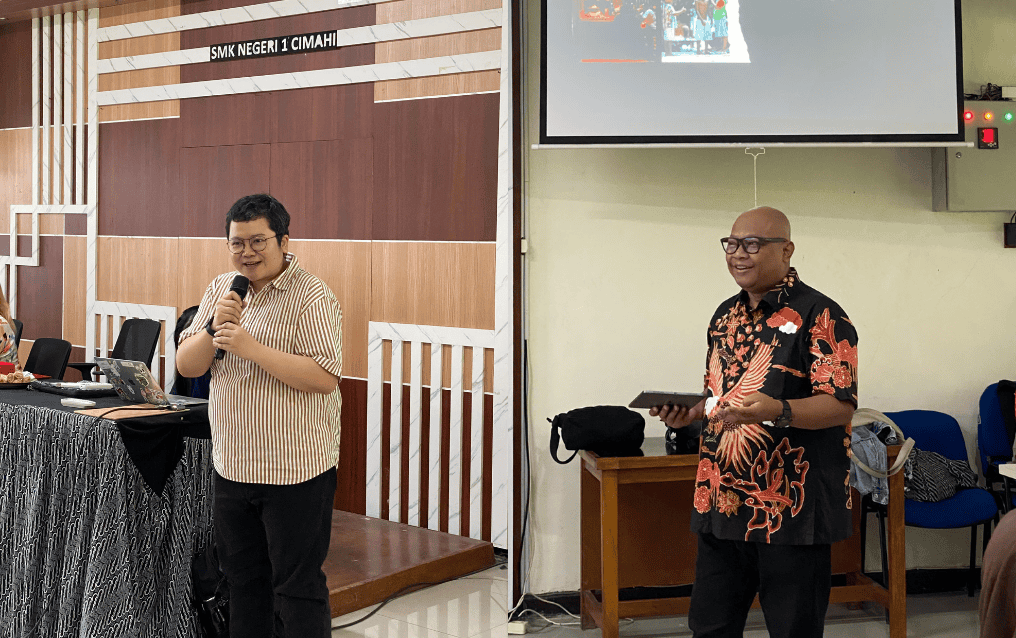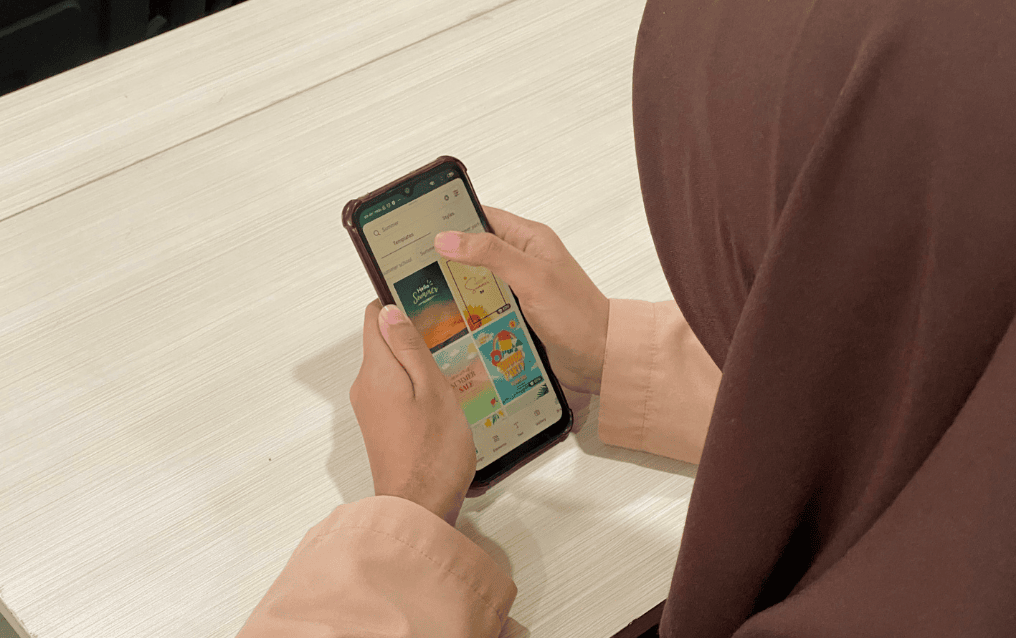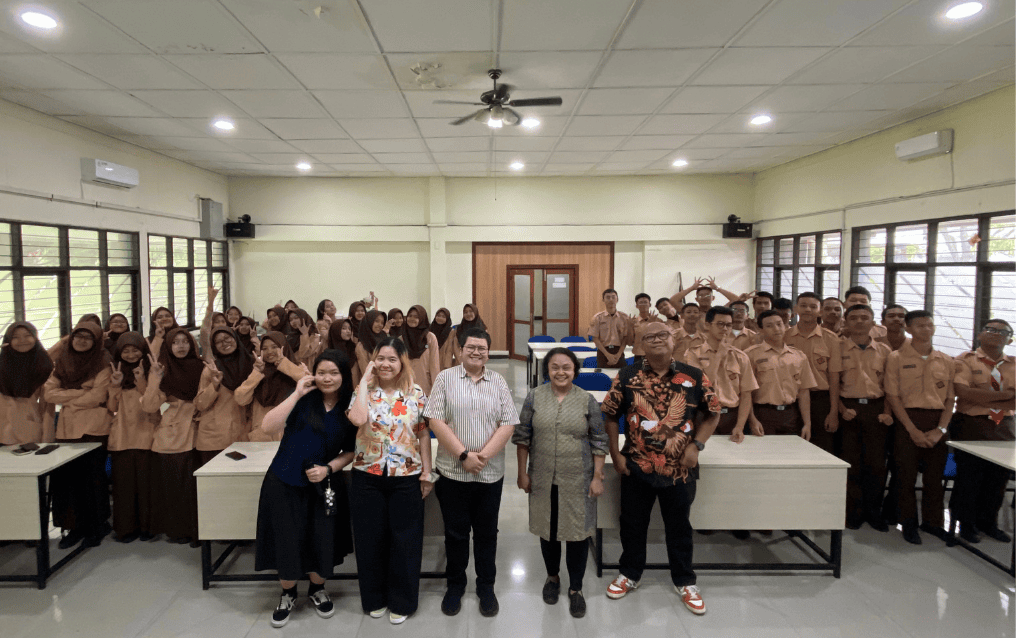Cimahi, May 16, 2025 — The Faculty of Communication Science at Tarumanagara University (Fikom Untar) reaffirmed its commitment to advancing digital literacy through a Community Service Program (PKM) titled “Digital Universe” held at SMKN 1 Cimahi. The event took place on Friday, May 16, 2025, and was attended by dozens of enthusiastic and engaged students who demonstrated a high level of interest in learning.
The event featured a seminar, digital poster workshop, and interactive discussions that explored various essential aspects of the digital era. With a communicative and educational approach, the program aimed to equip students with relevant and applicable knowledge about the rapidly evolving digital world.
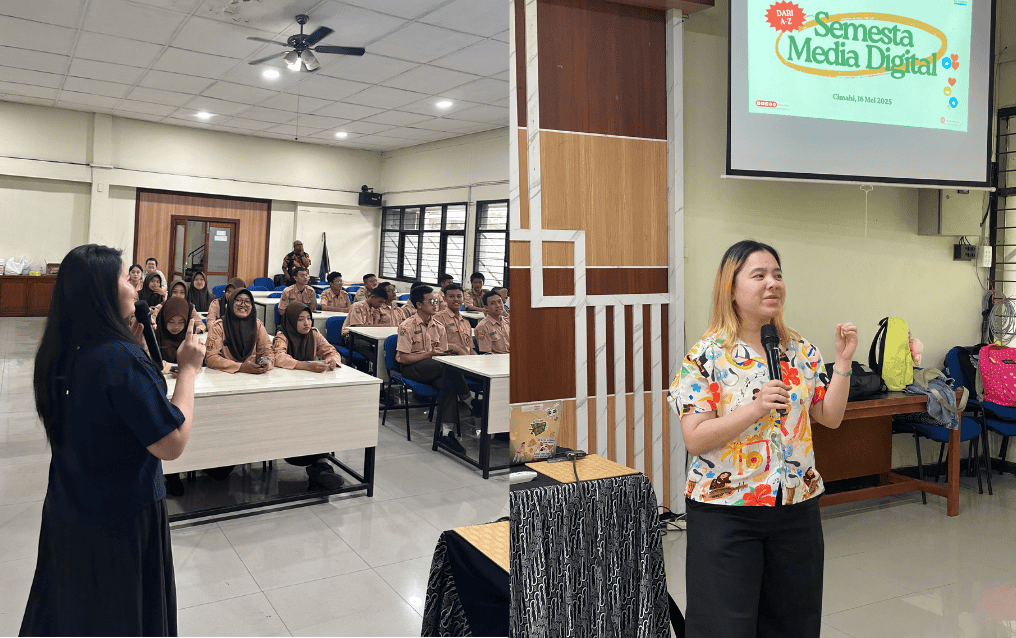
Four distinguished speakers in the fields of communication and digital technology shared their insights during the event. Nigar Pandrianto, M.Si., opened the session with a presentation on the importance of storytelling in delivering messages and building identity in an engaging and meaningful way. The session continued with Dr. Wulan Purnama Sari, M.Si., who highlighted the urgency of personal branding in the digital age. She encouraged students to begin developing a positive and consistent self-image across social media platforms.
The following session featured Lydia Irena, M.Si., who guided students to understand and cultivate an authentic personal brand as a foundation for facing future challenges. The final session was delivered by the Head of the Undergraduate Communication Studies Program at Untar, Dr. Sinta Paramita, S.I.P., M.A., who addressed artificial intelligence literacy and its impact on daily life. She emphasized the need for ethical and critical understanding of AI, which has now become integrated into everyday routines. “The challenges and ethical issues surrounding AI include over-dependence, copyright and originality concerns, and the importance of human oversight in creative processes,” Sinta explained.
Throughout the event, the participants showed great enthusiasm. They paid close attention and actively participated in the workshop sessions. Their engagement was evident not only during the Q&A sessions but also through their digital poster creations, which reflected a solid grasp of the topics presented.
Through this initiative, Fikom Untar hopes to continue fostering collaboration with secondary schools in nurturing a young generation that is not only digitally literate but also capable of building a strong and positive online identity. This spirit of knowledge-sharing remains a vital role of higher education institutions in shaping a society that can adapt to technological advancements. (LI/CH)

